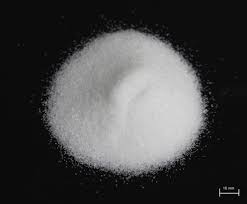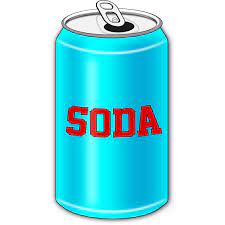Sixteen Common Foods That Increase The Cancer Risk
Sixteen Foods That Can Increase Your Cancer Risk
Eating healthy is a full-time job. It's essential to take the time to be knowledgeable about your diet because, in the end, a healthy diet can add years and years to your life. There are foods that many of us eat every day that is actually very bad for us and can even increase our risk of many forms of cancer. This article aims to help you choose your foods more conscientiously to avoid cancer-causing foods.
Microwave Popcorn and Cancer Risk
Popcorn is a great low-calorie snack and an excellent source of fiber, but you should only eat popcorn that you cook yourself because microwave popcorn can be really bad for you. Microwave popcorn is the epitome of modern convenience, but there are many reasons to avoid this staple snack in the American diet.
For one, the inner lining of popcorn bags is covered with perfluorooctanoic acid, also referred to as PFOA. Manufacturers use PFOA so that the popcorn kernels and other ingredients don't get stuck in the bag. PFOA is also an ingredient in Teflon. Most people know that scratching Teflon can contaminate  the food you cook on the pan, but PFOA relatively freely dissociates from the popcorn bag.
the food you cook on the pan, but PFOA relatively freely dissociates from the popcorn bag.
The Environmental Protection Agency considers PFOA a toxic chemical, but the chemical is still used in popcorn bags. There is strong clinical evidence that PFOA contributes to cancer and infertility in laboratory experiments.
Also, there are reasons to avoid microwave popcorn even on top of the issues with the bag. For one, most microwave popcorn is covered with preservatives. One of the most common is propyl gallate, which has been linked to issues ranging from rashing the skin to gastrointestinal complications. Microwave popcorn manufacturers heavily use genetically modified crops to make their popcorn as well.
Finally, popcorn is frequently doused with diacetyl, a powdery substance that has been associated with lung conditions among employees at their factories, frequently referred to as Popcorn Lung. All of this can be avoided simply by purchasing popcorn kernels from a responsible source and cooking them on your own.
Non-Organic Fruits and Cancer Risk
It's incredibly important to source your fruits from responsible growers. Many industrial fruit farms douse their fruit crops in chemicals, such as organophosphates, thiodicarb, and atrazine. Many also use fertilizers that are tremendously high in nitrogen.
Using atrazine as a fertilizer is illegal in many areas of the world, including most of Europe. There is robust evidence that atrazine exposure can lead to issues regarding reproduction and fertility, made particularly clear in animal experiments. In America, atrazine is still frequently used as a weed killer.
There is even evidence that atrazine impacts human fertility. In fact, in 2009, researchers found that in women that lived in areas where water was inadvertently laced with Atrazine, their children weighed less at birth. Also, frequently, non-organic fruit farms use bio-solids to fertilize their crops. Bio-solids are a polite way of saying that these crops are fertilized with human waste from American sewage plants. This sewage contains human waste and everything that is filtered from the water supply!
Vegetables and fruits are frequently doused with these chemicals, so the conspicuous health consumer should choose organic growers that avoid these chemicals. Growers use these chemicals to maximize the growth of their products. Apples have the highest rate of pesticide absorption. Ninety-eight percent of apples were shown to have traceable levels of pesticide! Grapes, strawberries, and oranges are other fruits with high pesticide absorption and exposure rates.
For this reason, washing all fruits before eating them is important. But it is also essential to understand that washing won't eliminate all of the contamination, which is why it's vital to source your fruits as well as possible.
Canned Tomatoes and Cancer Risk
Bisphenol-A is a common chemical that is frequently used to line the inside of canned food to prevent the organic chemicals in the food from interacting with the metal of the can, preserving taste. It is also known as BPA, and there are some concerns regarding Bisphenol-A's effect on health.
A recent study, released in 2013 by NAS, demonstrated that BPA could impact how genes function inside lab rat brains. The Food and Drug Administration is also concerned about potential health issues that may be contributed to BPA and cautiously urge food manufacturers to minimize their use of BPA or find another, more safe and suitable chemical to do the job.
There are many canned foods that don't necessarily present a considerable risk of BPA exposure, but acidic fruits and vegetables, including tomatoes, are some of the prime culprits because the acids can interact with the lining, causing the BPA to enter the food itself. BPA levels can reach a concentration in canned tomatoes where many groups recommend that children don't eat them at all.
Currently, there are no rules in place to make manufacturers label their cans if they use BPA, so unless it explicitly says that it does not contain BPA, you should assume that it does. If you want to mitigate your or your children's exposure to BPA, choose foods sealed in glass jars, frozen in bags, or just plain fresh!
Processed Meats and Cancer Risk
Processed Meats have become a staple in many people's eating habits. Initially, processed meats were created to help food taste better and remain edible for longer. When suitable, fresh meat was harder to come by, this was important, but today, when suitable, healthy meat is readily available, the downsides to processed meat become much more evident. Processed meat is a comprehensive and varied category that includes lunch meat, bacon, hot dogs, and sausages, among many other meat products.
The issue with these foods is that, unlike other meats such as steak, pork loin, and fish, processed meats are heavily treated with chemicals and salts, which affect their flavor, texture, and quality. Unfortunately, these ingredients also present a carcinogenic risk and are bad for the cardiovascular system  in general.
in general.
In a recent study released in the journal BioMed Central Medicine, it was found that over the course of a 13-year longitudinal study, one in every seventeen patients died. The consumption of processed meats played at least a solid correlative factor in mortality rates because participants that ate a volume of processed meat products of more than 160 grams per day were 44% more likely to experience premature mortality than those that ate 20 grams per day or fewer. This broad study ranged across ten nations in Europe.
One of the prime factors leading to this enhanced risk is sodium nitrate, a preservative used to maintain freshness and quality, leading to increased cancer risk. Smoked meats can also cause issues because the cooking process involved with smoking causes tar to be absorbed into the meat. If you enjoy foods like these and don't want to give them up, remember: moderation is your friend and will help you live a longer and happier life!
Farm-Raised Salmon and Cancer Risk
In general, fish is one of the best means to add lean protein to your diet. Of course, you should avoid some forms of fish, even if they are fresh. This includes Farm-Raised Salmon, which is not nearly as healthy as salmon, which is caught wild. It's essential to be aware of where your salmon is sourced because more than half of the salmon eaten in the United States comes from these farms.
Right now, you are likely asking yourself, what's the problem with Farm-Raised Salmon? The main issue with them is how they are fed and stored. Salmon that have been raised in a farm atmosphere don't live the same life or even have the same dietary composition as those caught wild.
For example, they are often fed the same food as other farm animals, including chicken litter. Healthy wild salmon is naturally pink, but because of their poor diet in captivity, they lose that color and are actually fed chemicals to produce this color artificially to trick you into thinking that you are getting a healthy product.
The deep red color indicates the animal's composition, and farm-raised salmon don't produce as many natural Omega-3 Fatty Acids, which means that you don't get the same health benefits from Farm-Raised Salmon as you would from wild salmon.
Also, to keep the fish healthy and heavy, they are treated with pesticides, antibiotics, and chemicals to increase the viability of the yield. Many of these chemicals are known as endocrine disruptors or have other adverse effects on human and ecological health. They also have increased levels of dioxins, mercury, and PCBs, all of which can harm health.
Potato Chips and Cancer Risk
One of the issues with the American diet today is that so many things that are bad for us or were initially intended to be eaten in moderation are now staple foods in the American diet. This is especially true of potato chips, a go-to snack for people on the go, and many people simply looking for some quick and easy tasty calories to go with their sandwich (which likely contains processed meat!).
Unfortunately, potato chips are unhealthy in many ways. For example, potato chips are a calorie-dense food and are also full of fat. Potato chips, like french fries, are a terrible addition to any diet as more than an occasional treat. A recent article released in the New England Journal of Medicine showed that consuming just a single ounce of potato chips daily led to an average increase in weight of two pounds.
Also, many types of potato chips are loaded with trans-fats which are universally bad for human health and should be avoided as completely as possible. The combination of high trans-fats and high sodium combine in a one-two punch that is highly dangerous for individuals that suffer from hypertension and elevated cholesterol levels.
Potato chips are also carcinogens, produced whenever potatoes are fried at very high temperatures. These exceptional temperatures are necessary to produce the crispiness in the ideal potato chip, but they also lead to the production of acrylamide, which is a cancer-causing agent most notable as a product of cigarette smoke.
All of this doesn't even consider the glut of artificial colors, preservatives, and flavors, which have unique effects on health and cancer risk. If you absolutely love the occasional bag of chips, turn to baked tortilla chips or potato chips to limit the calories and fat per serving. There are also a lot of alternatives that are much better for you, including whole wheat pretzels and popcorn popped on the stove or, even better, air-popped.
If you are addicted to the crispness of potato chips more than the potatoes themselves, baked banana and apple chips can sate that desire while also filling in your nutritional needs without being a caloric burden.
Hydrogenated Oils and Cancer Risk
Hydrogenated oils are vegetable fats that are chemically extracted from the original plant. Animal fat can be separated naturally, but vegetable oils must be treated to be separated. The bottle of vegetable oil on your counter has likely been treated with coloring agents and deodorized to make it appear more appealing as an ingredient.
There's nothing wrong with vegetable oil in moderation, but it's essential to be aware that Hydrogenated oil is very high in Omega-6 fatty acids. Too much vegetable oil in your diet can lead to health issues such as an increased risk of cancer and heart disease. The form of cancer that appears to be  most affected by Omega-6 is skin cancer.
most affected by Omega-6 is skin cancer.
To mitigate the risk of cancer associated with Omega-6 fatty acids, consuming products containing vegetable oil in moderation is essential and ensuring you get enough Omega-3 to balance your health. There are many great ways to supplement your diet with Omega-3, including fatty fish like wild mackerel and salmon and meat from animals fed by grass. There are also lots of supplements that effectively provide Omega-3.
The amount of oil used for home cooking is generally in an acceptable range, but processed foods tend to contain way too much vegetable oil because of its function as a preservative. The reason why Hydrogenated oils increase cancer risk is that they have a negative influence on the flexibility and structure of the cell membranes.
Smoked or Highly Salted Foods and Cancer Risk
One of the reasons why processed foods are such an issue is because they contain nitrite or nitrate salts. These salts are also used in a variety of other food products as well. They are potent preservatives and artificially color the meat to increase its visual appeal.
These salts are harmful because, after they are digested, they are converted into N-nitroso composites, which are associated with increased cancer risk. Foods often treated with Nitrates and Nitrites are salami, bologna, sausage, and bacon, and, as we mentioned before, they are also unhealthy because of their salt and fat content.
The excess consumption of food cooked by smoking is also bad because any food that is smoked absorbs tar solid carcinogens, which will then be absorbed into the body. Pickled foods are highly unhealthy because the pickling process is literally preserving food by drowning it in salt.
There is evidence that all the foods mentioned above increase the risk of stomach and colorectal cancer. This has been shown quite vividly by studying cultures like Japan, where the typical diet is high in smoked and salted foods.
Processed Bleached Flour and Cancer Risk
It is pretty clear that white flour is not suitable for you, as evidence continues to grow. It's so prevalent in the American diet, however, that it can be difficult to actually register how bad white flour is for the body. In reality, white flour is no better than sugar. White flour is the epitome of empty calories. The process that creates white flour eliminates all ingredients that can make grains beneficial.
The flour used to be naturally white, but white flour is bleached today to make the product more visually palatable, reducing production time and cutting costs. The most common chemical that is used to hasten the whitening process is chlorine gas.
Chlorine gas is highly toxic and dangerous when inhaled, and the chemical processes that make the chemical so dangerous are also the mechanisms by which causes white flour is utterly bereft of nutrition.
Because white flour is so processed, the body can directly absorb the carbohydrates and distribute them without effort. In most cases, unless you are highly active or maintain an otherwise optimal diet, white flour will be converted nearly directly into fat. Because white flour activates so readily, it can positively be hell on your insulin and blood sugar levels, increasing the risk of diabetes.
Over-consumption of processed flour can contribute to cancer for two reasons. For one, obesity leads to hormone imbalance, suppressing testosterone levels and increasing estrogen levels in men. In both sexes, HGH Levels are suppressed. Also, for patients with cancer, these empty calories can actually hurt health because of how readily they can be used by cancerous tumors.
GMOs Increase Cancer Risk
Many loud and vocal opponents of genetically modified foods are frequently called GMOs. GMOs are any foods, plants, or animals which have been modified at the genetic level via scientific means or exposure to chemicals.
Many GMOs are perfectly healthy, but the issue is that there is no review process or sufficient monitoring to make sure which GMOs are safe and which can potentially be dangerous. In one particularly telling study, performed by a scientist named Dr. Arpad Pusztai, potatoes were treated with a GMO modifier known as A-Lectin, which has an incredibly detrimental effect on mammalian health.
After only ten days of experimentation, the rats in the study experienced diminished livers and brains, as well as pre-cancerous growths and inhibited immune systems.
Many point to this study to say all GMOs are harmful, but the point of the study was explicit to show that genetically modified foods, if not properly inspected, can potentially have a highly negative impact on human health. There are no procedures in place to sufficiently monitor genetically modified foods, so the conscientious consumer would be wise to avoid GMO foods for their natural alternatives.
Processed Sugars Increase Cancer Risk
Like processed grains, processed sugars also wreak havoc upon insulin levels and provide a direct, unmediated path to increased weight gain and the exacerbation of cancerous and precancerous lesions and tumors.
For closing in on a century, scientific researchers have been aware of the potential cancer-exacerbating issues related to the excess consumption of sugar. In 1931, a man named Otto Warburg was the first researcher to prove that cancerous tumors draw in sugar from the bloodstream to develop and grow.
The sugars that seem to have the most potent effect on tumor growth also increase the risk of diabetes, such as simple sugars and carbs, as well as  High-Fructose Corn Syrup. When you eat whole wheat bread or fruits, your body also processes fiber and other nutrients, which causes the body to absorb the sugar more slowly.
High-Fructose Corn Syrup. When you eat whole wheat bread or fruits, your body also processes fiber and other nutrients, which causes the body to absorb the sugar more slowly.
High-Fructose Corn Syrup is essentially identical to the sugar in your bloodstream, meaning that it is absorbed directly from the stomach into the bloodstream, where it goes directly to fat tissue, the muscles (under heavy activity), or to tumors in the case of cancer.
Since the 1980s, corn syrup has become increasingly prevalent in our foods, including cereals, sauces, juices, sodas, cookies, pies, and cakes. One of the easiest ways to avoid HFCS and other processed sugars is to cook food yourself so that you know the ingredients or eat selectively or at specialty restaurants.
Artificial Sweeteners and Cancer Risk
Artificial Sweeteners are commonly used by people trying to limit their sugar intake, whether due to diabetes or a general interest in losing weight. The issue with artificial sweeteners such as sucralose and aspartame is that they aren't that effective at leading to reduced caloric consumption.
In fact, many studies show that, on average, people who turn to diet drinks tend to gain weight because these artificial sweeteners tend to lead to an increased sensation of hunger, especially for sweets. They've also been shown to be of limited effectiveness for diabetics.
These products can be ineffective for diabetics because they can inhibit the body's ability to regulate blood sugar and can also exacerbate existing issues related to diabetes, such as gastroparesis and cataracts. In some limited cases, aspartame can also lead to convulsions.
There is also growing data that suggests that aspartame, and some other artificial sweeteners, convert into Diketopiperazine, also known as DKP. When Aspartame is digested by the stomach, some of it is converted into this chemical, which is a known carcinogen and is most strongly correlated with increased brain tumor risk.
If you are interested in a sugar substitute that is actually healthy for you, try Stevia. Stevia is a natural plant extract derived from a tropical plant that has the ability to imitate the flavor and satiation associated with sugar without contributing to your caloric intake.
Based on the way that the extract is biologically configured, it activates the taste buds associated with sweetness, but the sugar substitute does not break down until after it will no longer be absorbed into the bloodstream and is safely excreted. The only issue is that Stevia cannot survive high temperatures associated with a stovetop but can survive the baking process up to a specific temperature.
"Diet" Foods and Cancer Risk
It may seem counter-intuitive but packaged diet products, whether drinks or meals, tend to be bad for you. For one, most common diet drinks contain aspartame, which is terrible for you for the reasons described in the previous section.
Diet meals also tend to be bad for you because they dazzle you with phrases like Low Fat or No Sugar but include other products that are just as bad for you. Many Low-Fat foods are loaded with sugar, which is actually far worse for your diet than fat! Also, almost all Diet Foods are loaded with salt, which is terrible for people that are overweight or obese and are already suffering from issues related to high blood pressure and hypertension.
Also, these diet foods often look nothing like their more naturally composed alternatives, meaning they need artificial flavors and sweeteners to imitate the flavor profile they are trying to copy. As we've mentioned previously, many of these artificial sweeteners and products are carcinogenic and could be much worse for you in the long run than sticking to a natural and responsible diet.
There is also evidence that many of the additives in diet food actually have addictive qualities in some individuals. They are included to help you develop a craving for the foods and lean on them as a crutch, whether or not you lose weight! Remember, the best way to lose weight is to consume a diet of moderation high in nutrient-dense foods such as vegetables and fruits.
Excess Consumption of Alcohol and Cancer Risk
Alcohol is an interesting beast. When used in moderation, it can have beneficial effects on health and wellness, but when consumed in excess, it can significantly increase mortality risk in several ways, including an increased risk of liver cancer and other medical conditions.
In one major study, researchers followed American women for nearly fourteen years to generally assess their health and how their habits affected their  health. Among the 20,000 participants, it was discovered that women that drank alcohol once per day or more were thirty percent more likely to experience breast cancer than non-drinking women.
health. Among the 20,000 participants, it was discovered that women that drank alcohol once per day or more were thirty percent more likely to experience breast cancer than non-drinking women.
Behind the use of tobacco products, alcohol consumption is the 2nd highest identifier of cancer risk. Low or modest consumption of alcohol is related to a diminished heart disease risk, but alcohol abuse is associated with an increased risk of general mortality, stroke, and heart failure. World Health Organization Researchers examined twenty-seven unique studies which explored the potential link between alcohol and cancer.
Their research determined that alcohol abuse is the leading cause of various cancers, including female breast cancer and cancers of the rectum, mouth, colon, liver, and esophagus.
Remember, the key here is moderation. There's no reason that you can't enjoy a beverage with dinner, but be sure to limit yourself to optimize your health!
Red Meat and Cancer Risk
Most people naturally crave red meat, at least sometimes. Red meat is a quality source of many vitamins, including Vitamin A. The problem is that we have a tendency to eat too much. Red meat is another food that is best eaten occasionally that many people eat daily.
The best red meat is that which comes from an animal eating its natural diet. Grass-fed beef is far better for health than grain-fed beef, and the former actually has cancer-preventing qualities, primarily in the form of linoleic acid.
On the other hand, studies have shown that daily consumption of red meat over an extended period of time can significantly increase cancer risk. For example, in one study, ten years of constant red meat consumption increased cancer mortality risk by twenty percent for women and twenty-two percent for men. In particular, red meat seems to increase the probability of experiencing colon, prostate, and breast cancer.
Red meat has the most significant and life-threatening impact on colon cancer. In one exceptionally large study of men and women between fifty and seventy-four, there was clear evidence that red meat consumption significantly increased the risk of colon cancer, while regular consumption of lean meat had ameliorative properties which appeared to protect against cancer.
Occasionally, there's nothing wrong with a delicious steak, but make sure you don't make it an everyday habit. Once per week is an excellent rule of thumb if you're a fan of steak and want to maximize benefits with minimal risk to your health.
Soda and Cancer Risk
After reading the previous entries, you probably wouldn't at all be surprised to find out that the excessive consumption of pretty much any soda is bad for you. One recent research study showed that men and women that average more than a single serving of soda daily are at increased risk of stroke compared to those that forgo soda altogether.
One reason for this is that sodas are packed with empty calories. Look at the back of that can of coke next time. The drink offers absolutely nothing your  body needs, aside from calories you can quickly get elsewhere and are very likely consuming too much of as it is. Most American sodas are flavored with HFCS, which is incredibly bad for you and can lead to diabetes and exacerbate cancer.
body needs, aside from calories you can quickly get elsewhere and are very likely consuming too much of as it is. Most American sodas are flavored with HFCS, which is incredibly bad for you and can lead to diabetes and exacerbate cancer.
Soda is also among the most common causes of Acid-Reflux disease, a condition in which stomach acid leeches into the esophagus, leading to discomfort and pain. Sodas are also wrong because their ingredients cause ulcers to become worse and more problematic. Artificial flavors and sweeteners can be sour for you too, and one of the most common flavorings is 4-methylimidazole, which has been shown in some studies to be carcinogenic.
Some important things to note if you do drink sodas occasionally: For one, root beer with natural flavors can be a nice treat every once in a while that, while still containing empty calories, is devoid of other ingredients that can be bad for your health. Also, clear sodas like Sprite don't contain artificial coloring agents and aren't as acidic as dark sodas, although Mountain Dew is just as bad or worse than other sodas and contains more caffeine.
- Xylitol is a Natural, Plant-Sourced and Low-Calorie Sweetener [Last Updated On: January 8th, 2025] [Originally Added On: January 12th, 2021]
- The Secret Behind Keeping the Weight Off for Good -- No More Losing and Gaining Cycles! [Last Updated On: January 17th, 2025] [Originally Added On: January 13th, 2021]
- The Cognitive Benefits of Starting a CoQ10 (Coenzyme Q10) Supplement Regimen [Last Updated On: January 12th, 2025] [Originally Added On: January 14th, 2021]
- It's Time to Understand Why Vitamin C is Critical for Our Health and Longevity! [Last Updated On: January 10th, 2025] [Originally Added On: January 15th, 2021]
- Snoring is the Most Common Early Symptom of Sleep Apnea -- Do You Suffer From It? [Last Updated On: January 11th, 2025] [Originally Added On: January 16th, 2021]
- Vitamin-d Longevity Vitamin [Last Updated On: January 2nd, 2025] [Originally Added On: January 17th, 2021]
- Twenty Simple Weight Loss Tips That Can Change Your Life [Last Updated On: January 1st, 2025] [Originally Added On: January 18th, 2021]
- Twelve Ways To Control Cravings [Last Updated On: February 22nd, 2025] [Originally Added On: January 19th, 2021]
- The Truth About The Zone Diet [Last Updated On: January 1st, 2025] [Originally Added On: January 20th, 2021]
- The Truth About The Schwarzbein Principle [Last Updated On: December 31st, 2024] [Originally Added On: January 21st, 2021]
- The Truth About The Realage Diet [Last Updated On: December 31st, 2024] [Originally Added On: January 22nd, 2021]
- The Truth About The Origin Diet [Last Updated On: December 30th, 2024] [Originally Added On: January 23rd, 2021]
- The Truth About The Eat Right, Live Longer Diet -- Nourishing Food Equals Increased Longevity [Last Updated On: January 31st, 2025] [Originally Added On: January 24th, 2021]
- The Essential Roles Magnesium Plays For Our Energy Levels, Skin Youthfulness and Mental Health [Last Updated On: January 4th, 2025] [Originally Added On: January 25th, 2021]
- The Real Skinny On Vitamin B12. What It Can And Cannot Do For You [Last Updated On: March 23rd, 2025] [Originally Added On: January 26th, 2021]
- The Importance And Purpose Of Stress [Last Updated On: February 18th, 2025] [Originally Added On: January 27th, 2021]
- The Ideal Balanced Diet The Reality Of Healthy Eating [Last Updated On: December 30th, 2024] [Originally Added On: January 28th, 2021]
- The Effects Of Cortisol On The Body [Last Updated On: July 28th, 2024] [Originally Added On: January 29th, 2021]
- Should You Consider Intermittent Fasting? [Last Updated On: November 24th, 2024] [Originally Added On: January 31st, 2021]
- Can Caloric Restriction Help You Lose Weight And Live Longer? [Last Updated On: November 24th, 2024] [Originally Added On: February 1st, 2021]
- How Does Poor Sleep Rob Vitality And Health? [Last Updated On: November 24th, 2024] [Originally Added On: February 2nd, 2021]
- Nine More Natural Ways To Relieve Anxiety [Last Updated On: November 24th, 2024] [Originally Added On: February 3rd, 2021]
- Metabolism Boosting Tips For Losing Weight And Feeling Great [Last Updated On: November 22nd, 2024] [Originally Added On: February 4th, 2021]
- Juicing Pros And Cons [Last Updated On: March 22nd, 2025] [Originally Added On: February 5th, 2021]
- Insomnia Guide [Last Updated On: November 21st, 2024] [Originally Added On: February 6th, 2021]
- How To Lose Weight With Human Growth Hormone [Last Updated On: November 20th, 2024] [Originally Added On: February 7th, 2021]
- How Safe Is Monosodium Glutamate AKA Msg? [Last Updated On: November 23rd, 2024] [Originally Added On: February 8th, 2021]
- How Is Sleep Apnea Diagnosed And Treated [Last Updated On: November 18th, 2024] [Originally Added On: February 9th, 2021]
- Hidden Sources Of Sugar In Common Foods [Last Updated On: November 17th, 2024] [Originally Added On: February 10th, 2021]
- How Would You Like to Potentially Add 14 Healthy and Youthful Years to Your Life Span? [Last Updated On: November 19th, 2024] [Originally Added On: February 11th, 2021]
- Four Reasons Why Healthy Sleep Encourages Weight Loss [Last Updated On: November 16th, 2024] [Originally Added On: February 12th, 2021]
- Omega-3 Fatty Acid Facts And How They Relate To Hormone Replacement Therapy [Last Updated On: July 25th, 2024] [Originally Added On: February 14th, 2021]
- Drink Right To Live Well [Last Updated On: November 15th, 2024] [Originally Added On: February 15th, 2021]
- Consumers Of Processed Meat Put Themselves At Risk [Last Updated On: November 14th, 2024] [Originally Added On: February 16th, 2021]
- Comparing The Same Mass Of Muscle And Fat [Last Updated On: February 19th, 2025] [Originally Added On: February 17th, 2021]
- Watermelon Health Food? The Benefits Of L-citrulline And Watermelon [Last Updated On: November 13th, 2024] [Originally Added On: February 18th, 2021]
- Alcohol Appears To Impact Sperm Quality [Last Updated On: November 12th, 2024] [Originally Added On: February 19th, 2021]
- The Benefits of Selenium - Should You Take a Selenium Supplement? [Last Updated On: February 9th, 2025] [Originally Added On: April 8th, 2021]
- Selenium and its Impact on Your Health and Hormones [Last Updated On: March 3rd, 2025] [Originally Added On: April 8th, 2021]
- Scientifically Proven Benefits Of Turmeric The Indian Spice [Last Updated On: March 18th, 2025] [Originally Added On: April 27th, 2021]
- Natural Remedies for Heartburn or Acid Reflux [Last Updated On: February 18th, 2025] [Originally Added On: May 22nd, 2021]
- What the Heck Is a Raisin, Anyway and Why Would I Want to Eat One? [Last Updated On: August 18th, 2024] [Originally Added On: June 10th, 2021]
- Fat-Focused Diet May Help Boost Testosterone [Last Updated On: February 17th, 2025] [Originally Added On: June 10th, 2021]
- Chia Seeds: More Than Just a Fad [Last Updated On: July 12th, 2024] [Originally Added On: June 24th, 2021]
- Intermittent Fasting Boosts Growth Hormone, and Improves Cognitive Health [Last Updated On: March 4th, 2025] [Originally Added On: May 2nd, 2022]
- Growth Hormone, Nutrition, and Diet Affect Longevity [Last Updated On: February 14th, 2025] [Originally Added On: May 6th, 2022]
- How Your Health is Affected by Brown and White Fat [Last Updated On: February 14th, 2025] [Originally Added On: May 17th, 2022]
- Tesamorelin Boosts HGH Levels and Burns Belly Fat [Last Updated On: February 14th, 2025] [Originally Added On: May 21st, 2022]
- Build Muscle With Tofu - Don't Fear Soy [Last Updated On: December 29th, 2024] [Originally Added On: July 12th, 2022]
- Balancing HGH Levels with Weekly Sogroya [Last Updated On: December 28th, 2024] [Originally Added On: September 1st, 2022]
- Pecans Are Amazing [Last Updated On: February 19th, 2025] [Originally Added On: November 22nd, 2022]
- The Benefits of Fenugreek [Last Updated On: October 14th, 2024] [Originally Added On: November 24th, 2022]
- The Foods To Eat To Increase Stem Cells [Last Updated On: March 6th, 2025] [Originally Added On: December 7th, 2022]
- The Versatility of Pecans [Last Updated On: February 19th, 2025] [Originally Added On: February 9th, 2025]
- Understanding The Concept: A Pound Of Muscle Vs. A Pound Of Fat [Last Updated On: February 19th, 2025] [Originally Added On: February 11th, 2025]
- The Aging Enigma: Unravelling the Web of Human Growth Hormone Decline [Last Updated On: February 17th, 2025] [Originally Added On: February 12th, 2025]
- Rekindling the Flame: How a Fat-Friendly Diet Can Ignite Testosterone Levels [Last Updated On: February 14th, 2025] [Originally Added On: February 13th, 2025]
- Unlocking Your Inner Fountain of Youth: The Magic Elixir of HGH Injections for Women [Last Updated On: February 17th, 2025] [Originally Added On: February 14th, 2025]
- Effective Strategies for Controlling Cravings [Last Updated On: February 17th, 2025] [Originally Added On: February 17th, 2025]
- Overview of Hormone Replacement Therapy and the Role of Intermittent Fasting [Last Updated On: February 22nd, 2025] [Originally Added On: February 22nd, 2025]
- Understanding the Power of Stem Cells [Last Updated On: February 24th, 2025] [Originally Added On: February 24th, 2025]
- The Role of Selenium in Health and Hormones [Last Updated On: February 26th, 2025] [Originally Added On: February 26th, 2025]
Word Count: 4257







